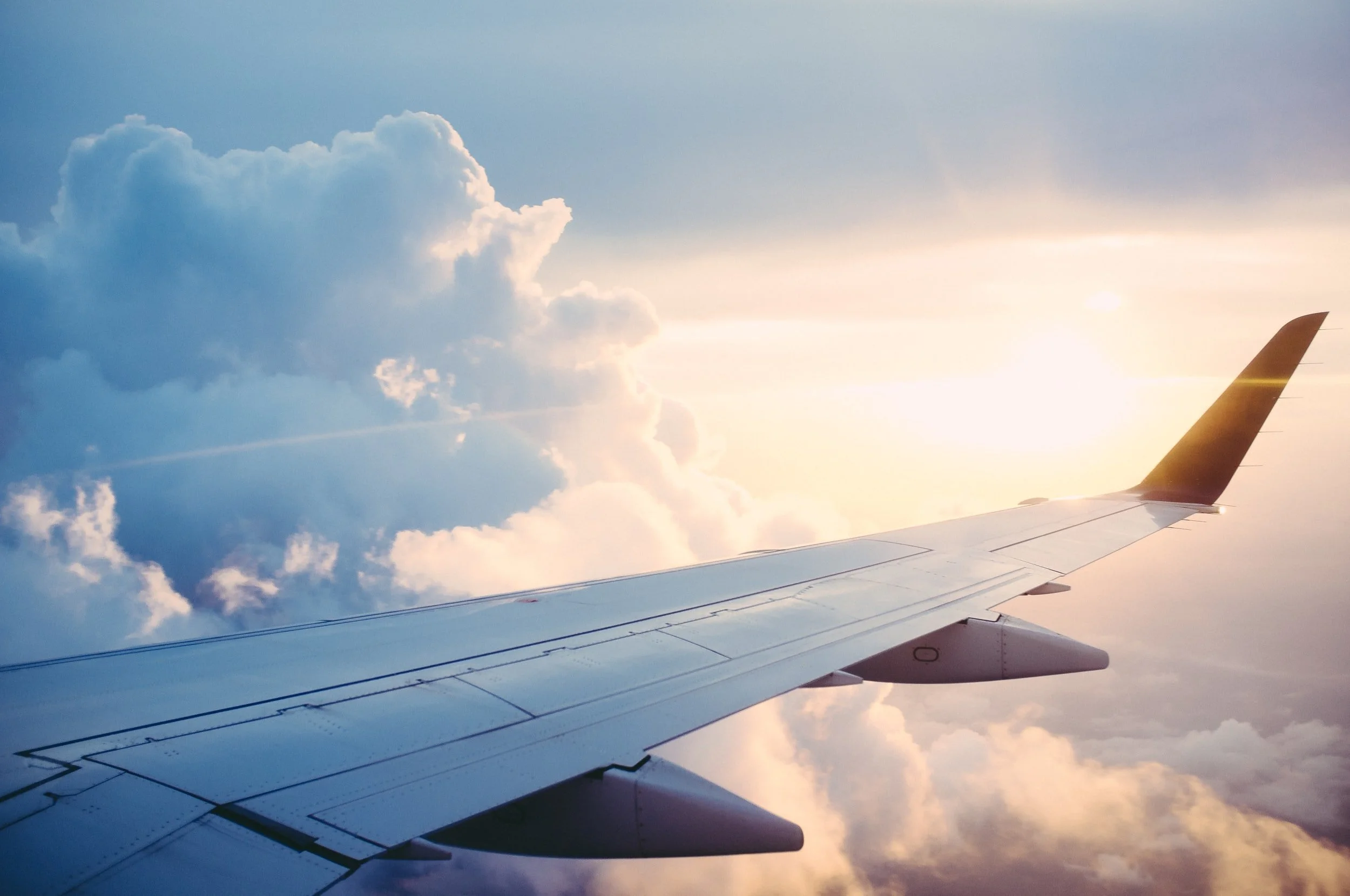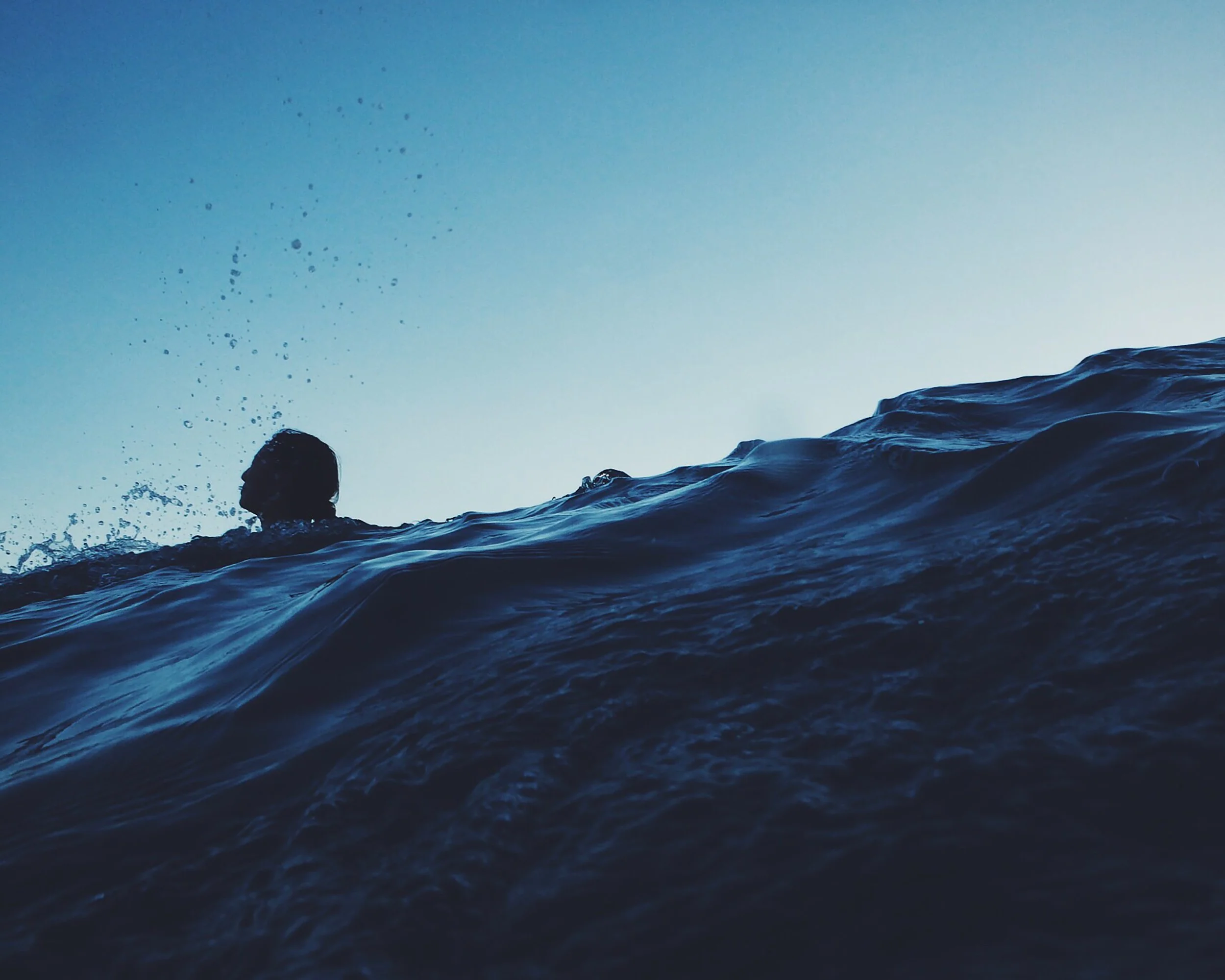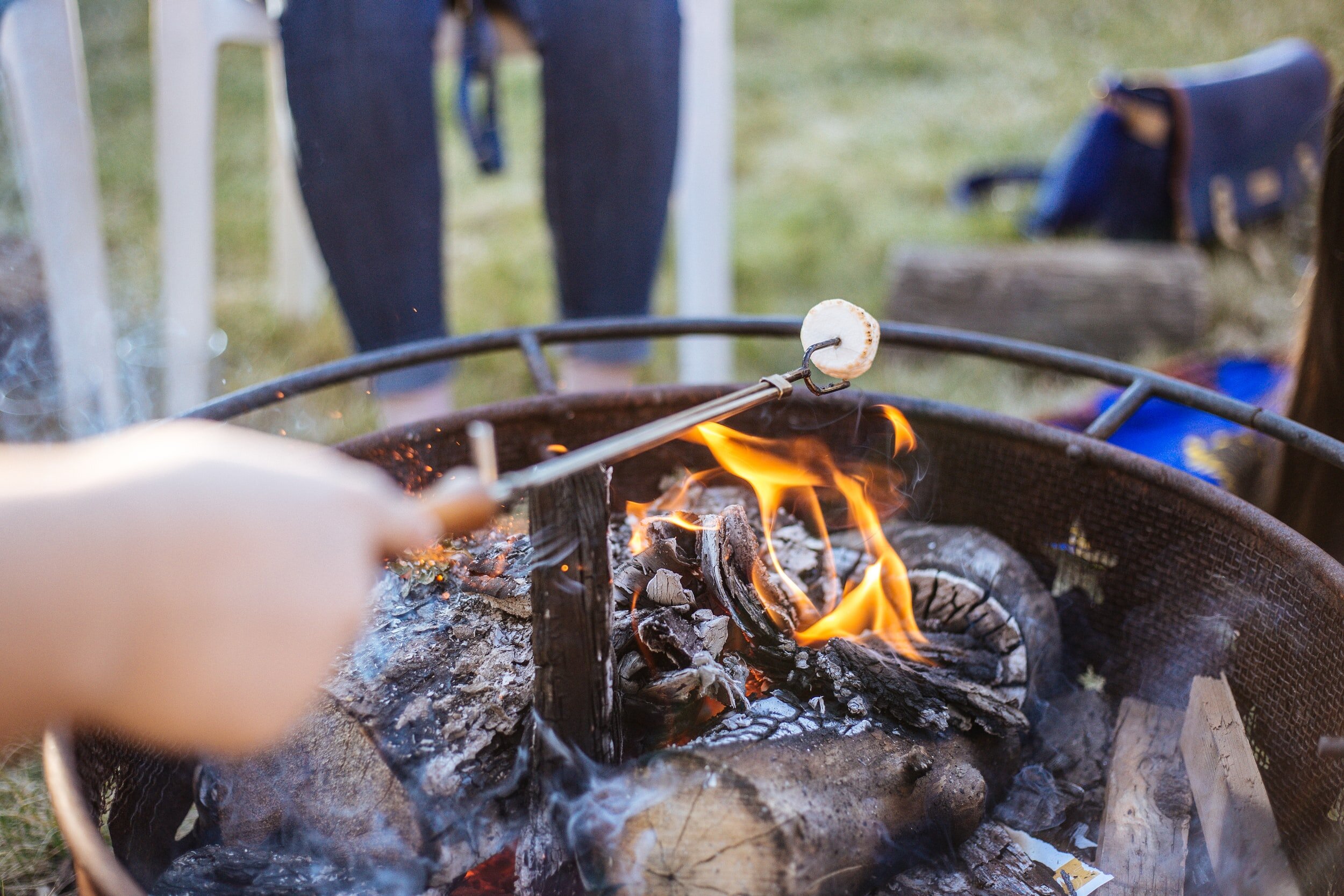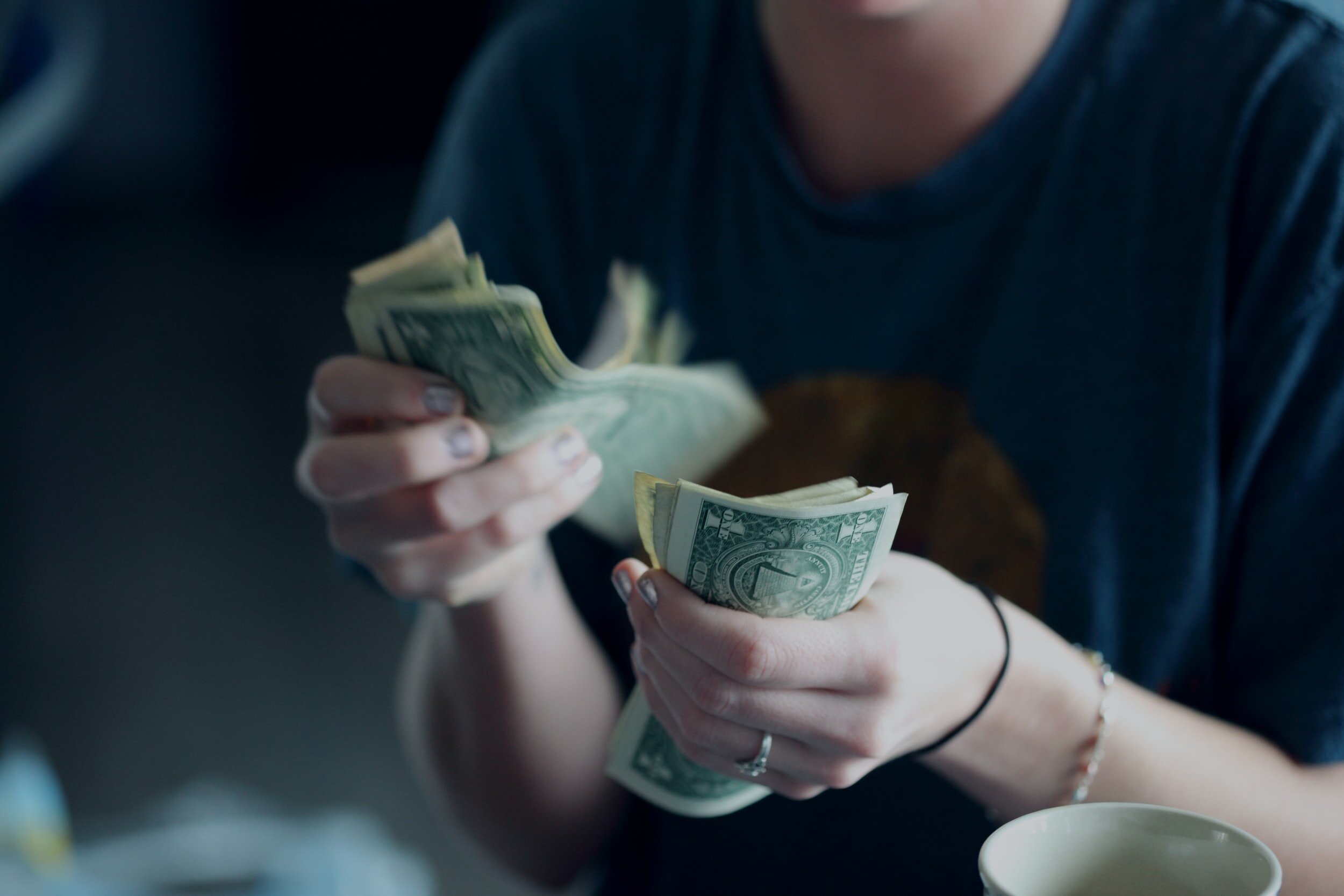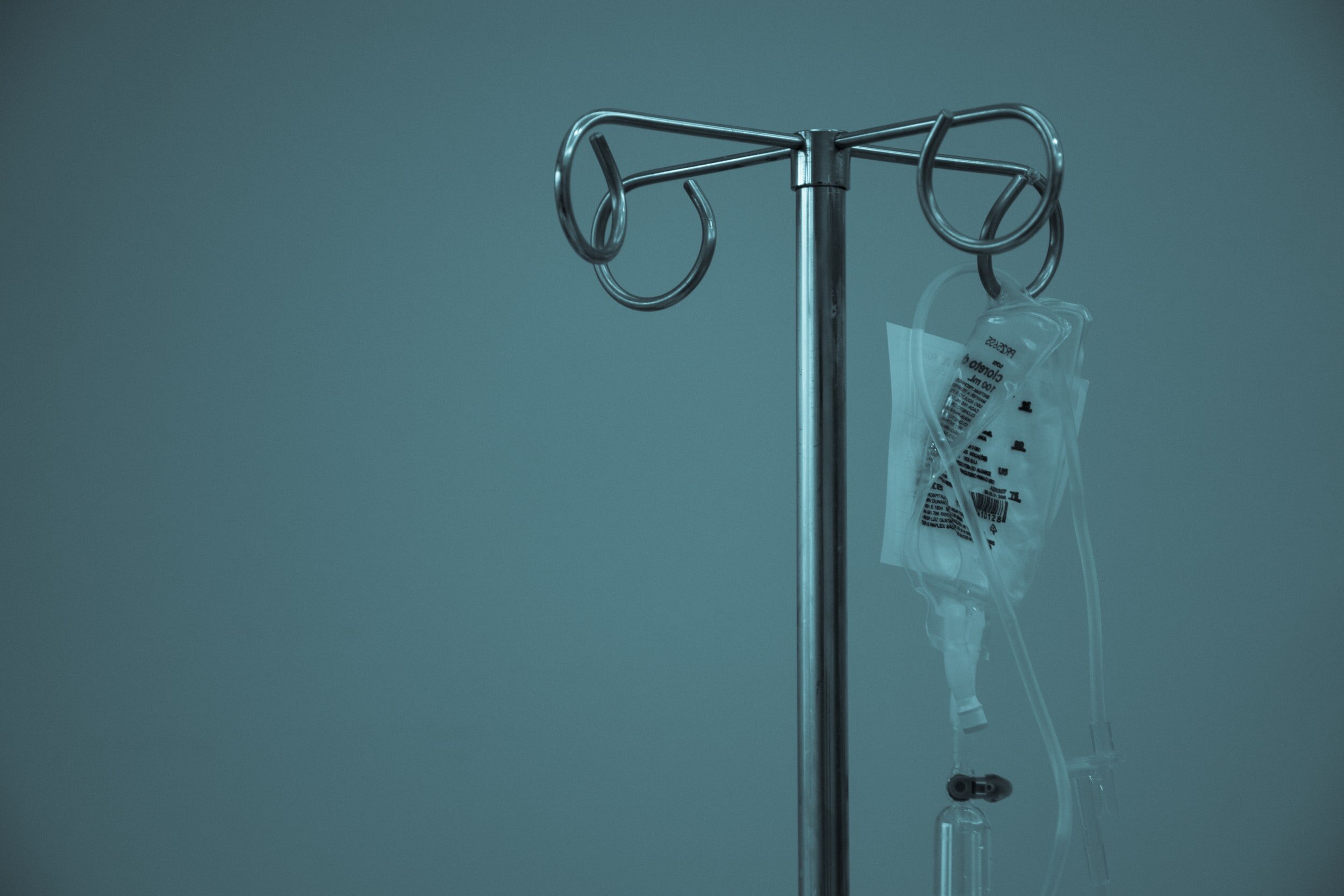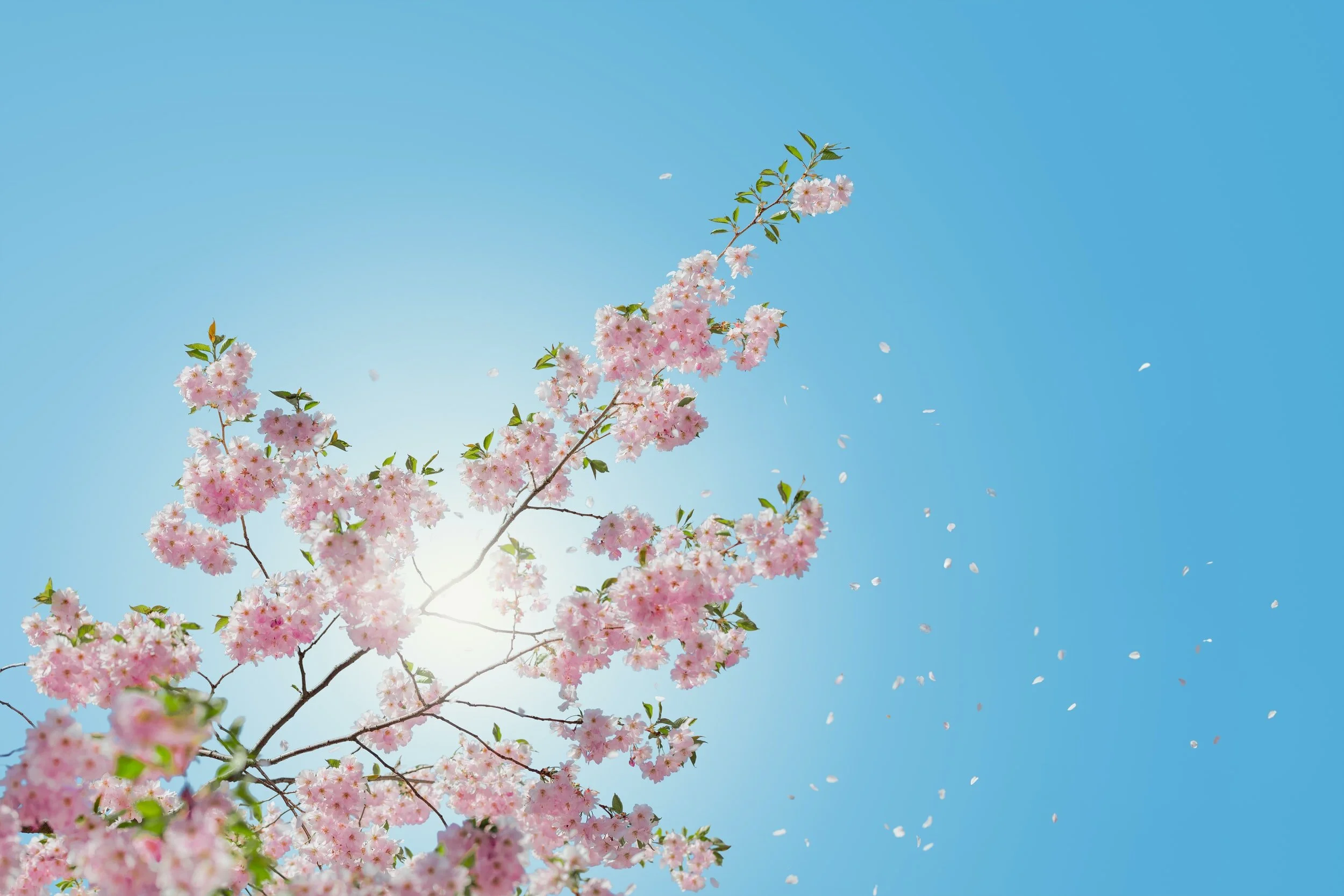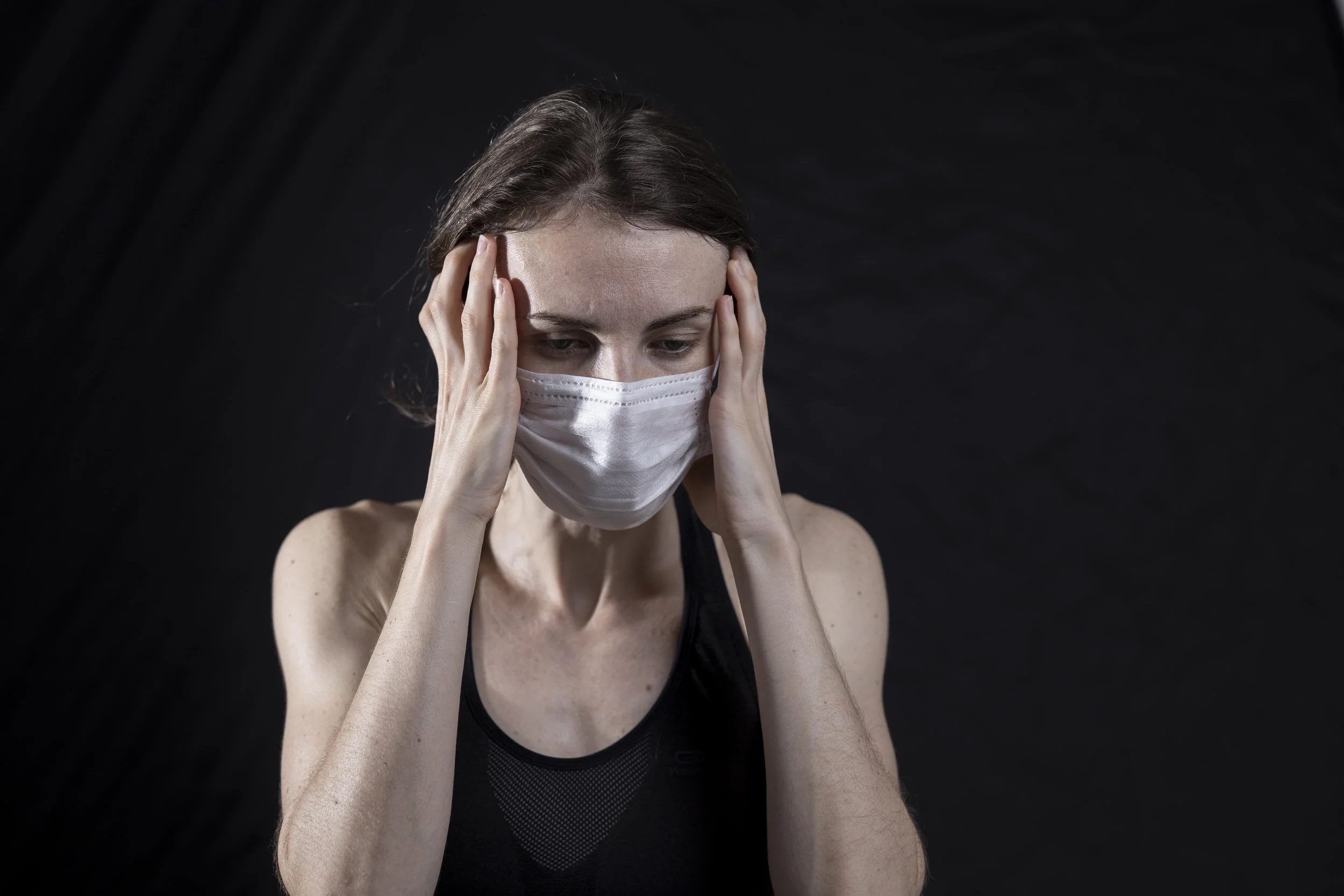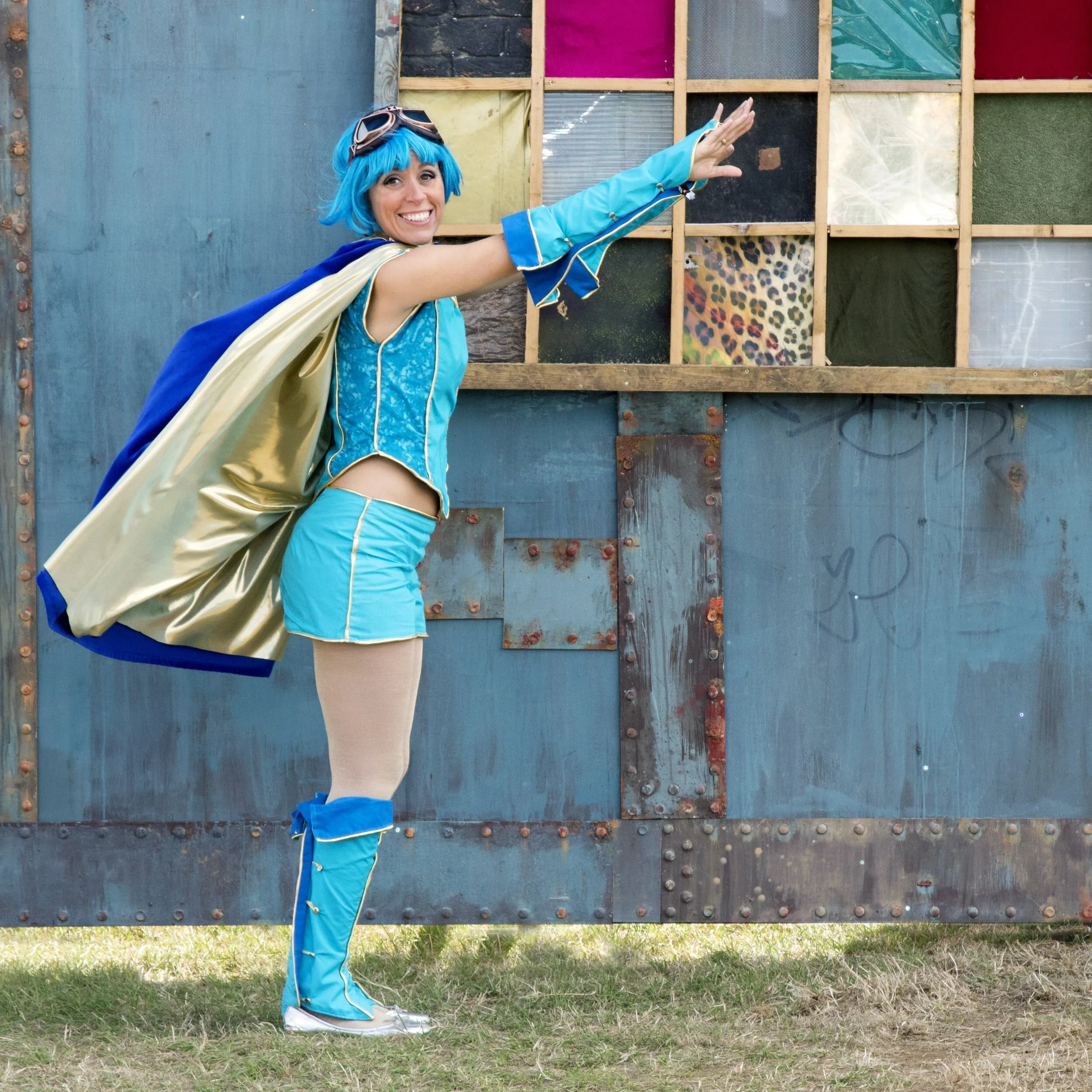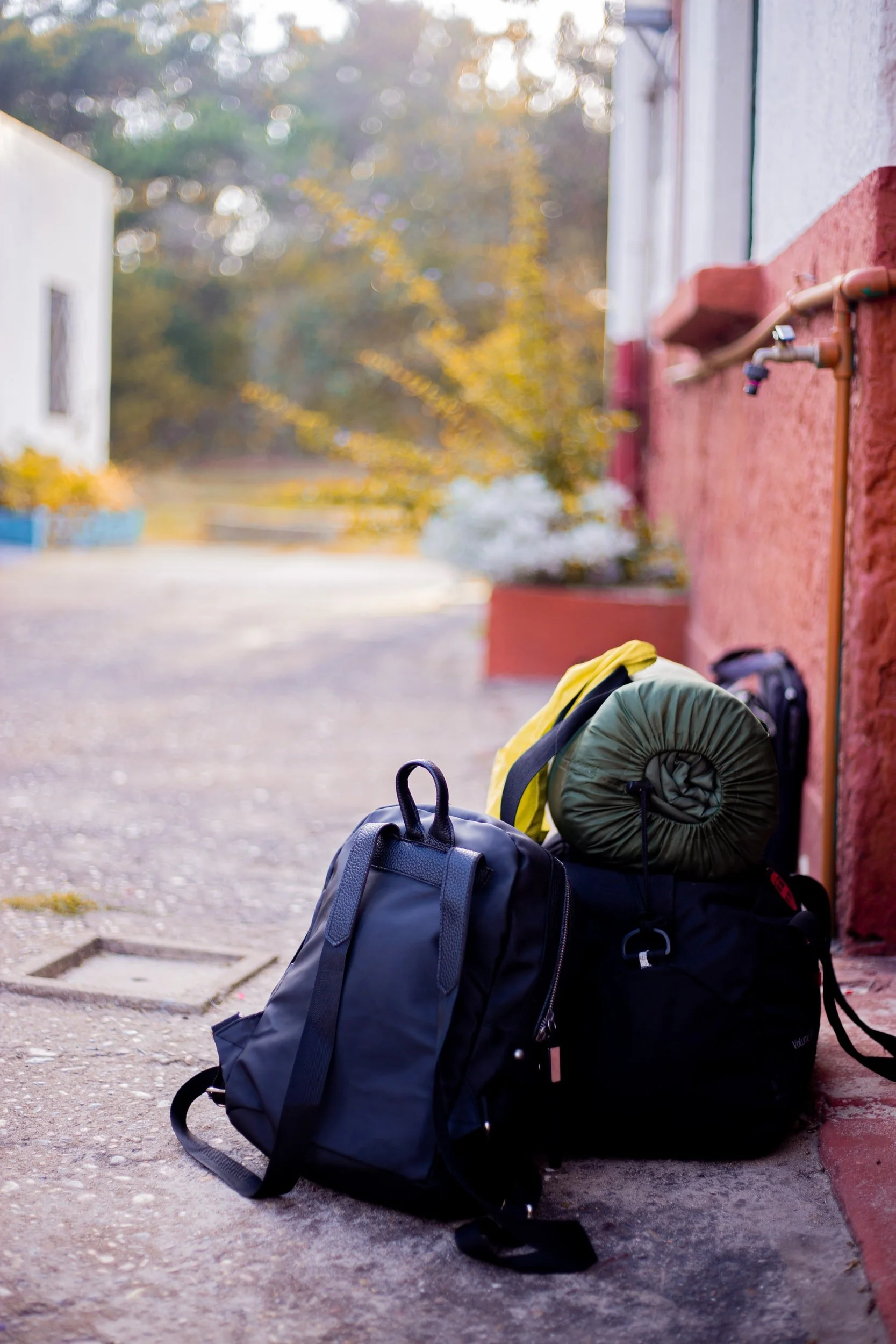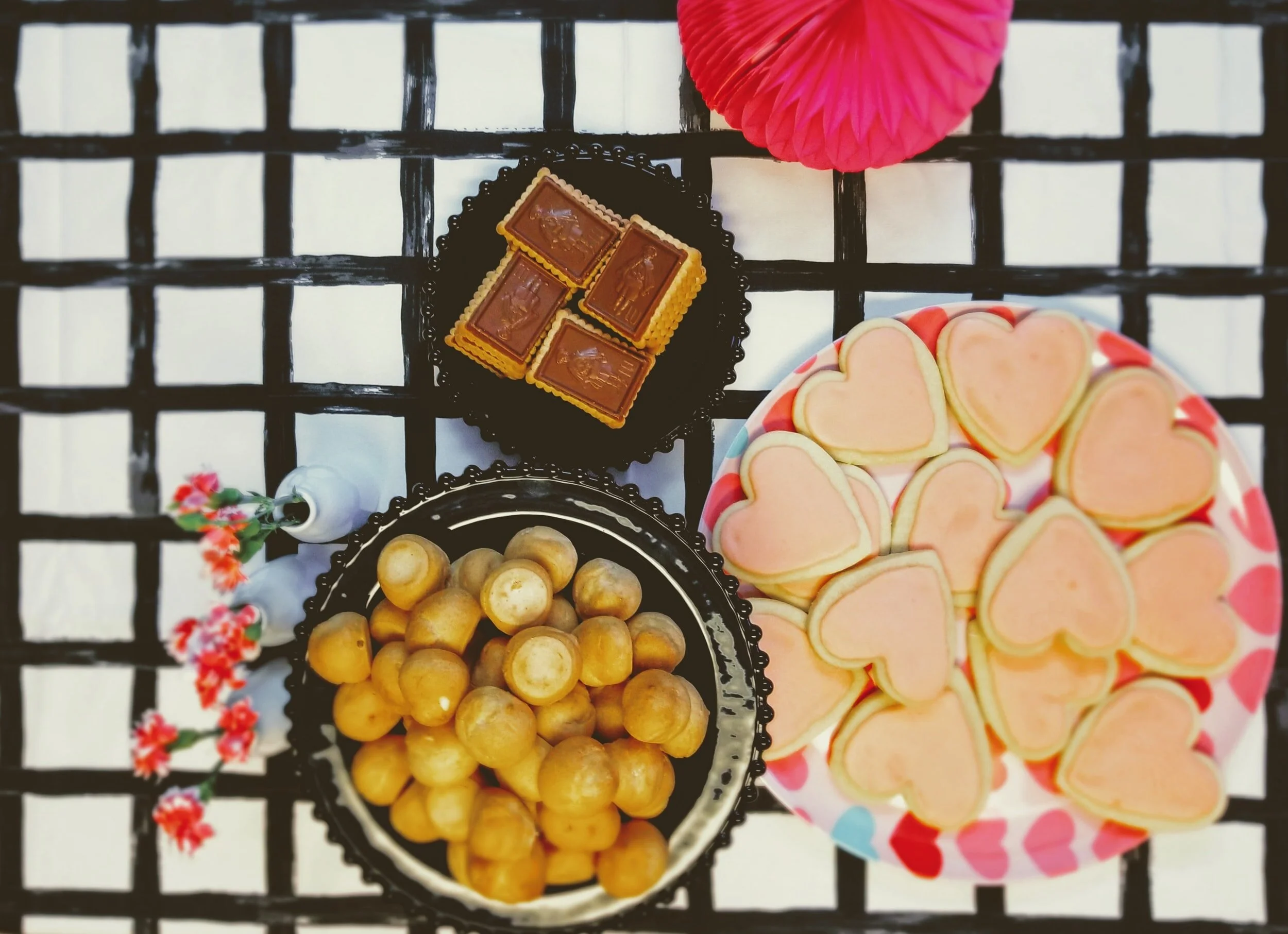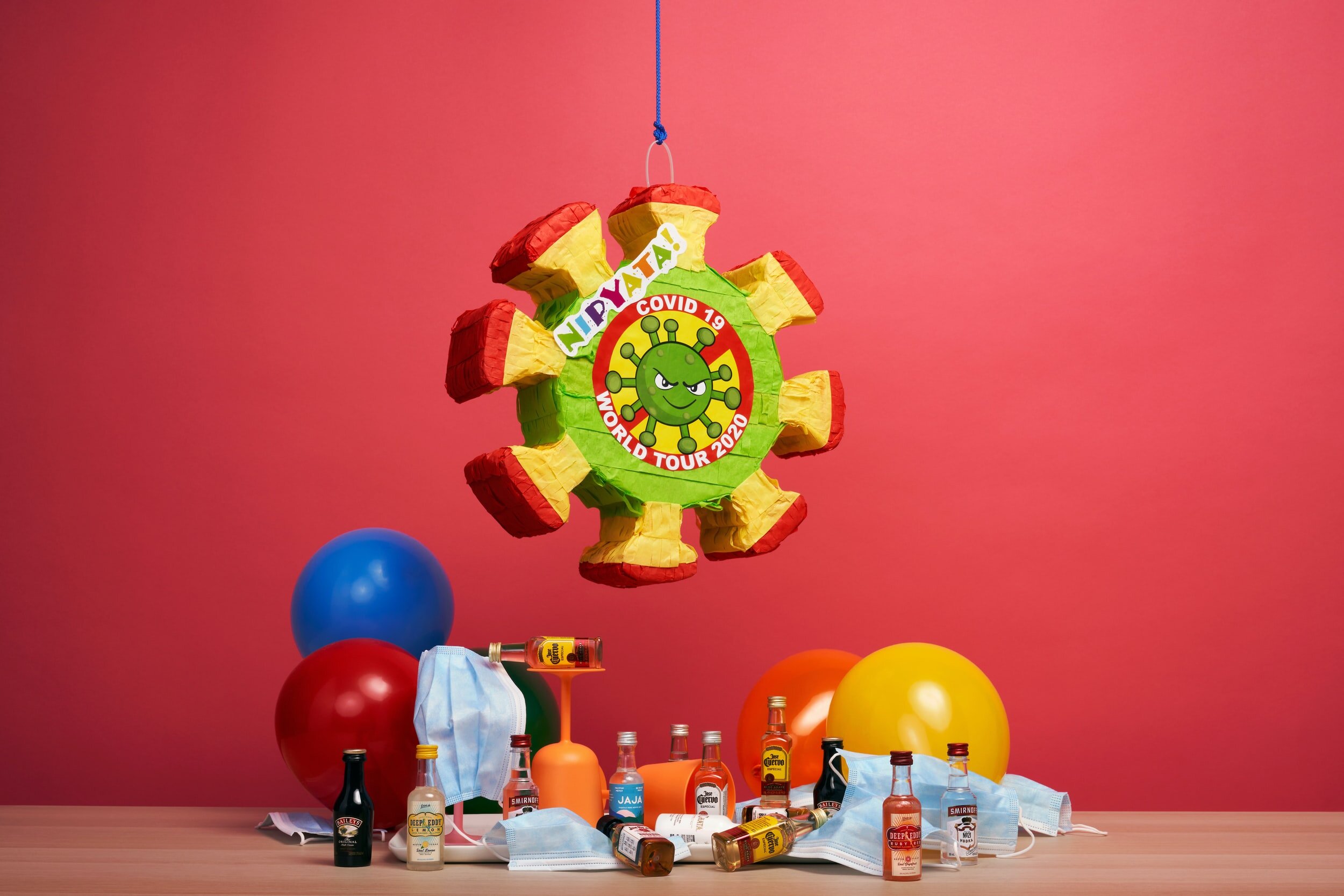So many little routines and habits that are inflexible because there was no reason to be flexible.
This Friday, I’m heading out of town by myself, sans kids, for the first time in more than two years. I’m so excited - excited to see friends, excited for the kids to have a dad weekend (which is way more fun than a regular weekend), excited to have a little space. And I’m also nervous. Our family has grown so close these last few years. So many little routines and habits that are inflexible because there was no reason to be flexible.
I wonder how my various inflexibilities exist because I’ve simply never had a reason to stretch in those areas. Last weekend we went down to the park and Forrest tossed me a few softballs to pass the time. (Of course I hit every single one perfectly.) The next day, I was sore in muscles I didn’t even know I had. Now, not to brag, but my keeping-sane yoga routine means I’m pretty used to being sore all over, but something about swinging a baseball bat used motions completely foreign to my back. And shoulders. And hips. And my feet, somehow?
I’m not flexible in those areas because I never play baseball. I’m even less flexible when it comes to my sleep schedule, how I take my tea, my willingness to wear itchy sweaters, and the more problematic areas of meeting new people and learning to see things from other people’s points of view. It’s been awhile since I went to a cocktail party and chatted with other adults from all walks of life. And I find even the idea of it hard. And a little distasteful. Why go talk to some person I’m never going to see again when I could be cozed up on the couch with my dogs?
But I don’t want to become inflexible, viewing other people as obstacles to my comfort or preferred plans. I want to see them as they are - dynamic beings with full lives, interesting stories, and maybe an opinion or two that could stretch my own understanding of the world. People as things, that’s the beginning of sin, a wise woman once said. And my inflexibility is no excuse for seeing people as things.
So, I’m off to see another small part of the world this weekend, and I hope, as much as I will miss my kids and routines, that I can stretch just a little more each day and relearn how to be fully in the world again.
Above Water
In the swirl of life, sometimes I forget the things that give me the space to breathe until I am so out of oxygen I’m barely functional anymore.
Hi all!
It’s only been like eight months since I posted, right? I decided to buckle down and get the manuscript written and also be the PTA president and then you know, be a mom, and something had to give. But I forgot how much I missed this. It’s funny, isn’t it? In the swirl of life, sometimes I forget the things that give me the space to breathe until I am so out of oxygen I’m barely functional anymore.
But the manuscript is out there in various agents’ inboxes, and the rejections have started to pour in - crossing my fingers for just one positive response this time, while determinedly refusing to let all the “no’s” get me down. I read an article once about how the best thing a mom can do for her daughters’ self confidence is show her how to fail - to try new hard things, be brave, and then feel all the hard feelings before picking herself up and doing it all again. Well, my girls are definitely getting to watch me in action.
But for now, I’m going to take the month that I’m waiting for answers to breathe. And maybe blog. Or go for walks, or organize parent talks at the school, or bake yummy things, or any of the many things that make me feel alive and worthy and just that much more brave.
What do you do to keep your head above water when the outcome is 100% out of your control?
Rapids
I always exaggerate the bad and ruin the calm waters looking ahead to the next rapids. it’s a great plan for keeping everyone alive, but not so much for letting us all enjoy the ride.
I’ve been whitewater rafting a few times in my life - a youth group trip here, a family vacation there. From what I remember, it’s pretty fun. You paddle when you’re told to paddle, try not to fall out, and enjoy the ride. All of the hard stuff is done by the guy in the back who is paid to steer and get you through safely. I enjoyed the contrast between breathtaking rapids and lazy, slow times when you let the river pull you gently forward.
These days, I live in an area defined by its lakes and beaches, but lately I feel like I’m constantly on a whitewater trip. Every day brings new challenges, some seen, some that sneak up on me. And just when I think we’re done, another set of rocks looms ahead. It has been such a turbulent year, ending, for us, in lots and lots and lots of transitions. And like the guide at the back of the boat, my job has seemed to be the person who looks ahead to what’s coming and steers us to the most fun, yet safest route.
And to be honest, I am really, really bad at that. I always exaggerate the bad and ruin the calm waters looking ahead to the next rapids. it’s a great plan for keeping everyone alive, but not so much for letting us all enjoy the ride.
A few weeks ago, in the middle of a bunch of stress for me, Forrest became fed up with a lot of food pickiness and rudeness from the kiddos. He decided that they’re now on KP duty for the indefinite future. At the time, I was very annoyed. Really? A change in rules right then? When I was too busy to even remember whether I’d brushed my teeth most days? He laughed and said, “This is not a coincidence. Why do you think this storm and stress is happening right now? Because you’re distracted and not smoothing things out.” After a few moments of grumpiness, I realized he was right. What looked like a terrible case of “spoiled-kid-itis” was actually their way of letting us know that they’re ready for the next jump up in responsibility.
Like the formerly well-behaved baby who regresses upon learning to crawl, my bigger kids aren’t quite big enough yet to verbalize that they’re ready to take on more grown up chores. No longer just able to help out with the safe stuff, they want to have the ability to decide, really decide, how and when they eat. And the flip side of that is that they need to learn, really learn, how to cook.
That scares me. Not the safety part of it. They know their way around a campfire and a stove, and no child of mine makes it past first grade without learning how to make tea. But what if they decide to have peanut butter sandwiches for every. single. meal. What if I become that parent whose kid doesn’t eat anything but cereal?
There have been so many river rapids these last few weeks. My kids, like all kids, don’t exactly like it when you put more work on their plates. Saying things like, “If you want to have a say in what you eat, you need to make it for yourself,” doesn’t go over well. (It’s even worse because now that Forrest and I aren’t cooking to a kid palate as much, we're having fewer pb&j’s and more tuna melts.) All I want is to be that guide and steer our family around this hard time. Who cares? Yeah, they’ll throw a fit when the crusts aren’t cut off perfectly, but isn’t that better than being the mom whose kid brings an apple and a cheese stick for lunch because she’s pissed off that she had to help?
But I don’t want to steer this boat forever. As I said, I’m not great at it. And I don’t get to enjoy the ride at all. And, not for nothing, but in the middle of all this conflict, we’ve seen our kids make great strides in wanting to be involved in managing their diabetes. Related? I don’t know. It’s time to hand the steering over to them, just a little bit more.
This year, we’ve all had to learn the river, without the many, many supports we usually have. I often had to remind myself that when I had children, I did not ever expect that I would be cut off from friends, family, school, childcare, or even, at first, playgrounds and other child-exhaustion tools. We’ve learned to navigate our own rivers and along the way, our kids have had to pick up the oar occasionally too. I don’t know how that will affect them. As hard as it’s been, I don’t think I would wish that growth away. They’re turning out to be pretty amazing people and nearly as stubborn as their parents.
And I know this: when their day comes, they’ll be damn ready to steer their own boats.
Two Selves
When I’m caught up in the muddle of stress and worry and work, I’m not the same person as I am when I’m not.
I’m going to brag on me and my friends for a minute here. I have been up to my neck in it these last few weeks running a fundraiser for our PTA so that next year, when life hopefully looks more in-person, we have cash for all those field trips and assemblies and art programs. And we kicked butt. It was so complicated, in the middle of hybrid learning and pandemic rules and everything, and there were some very rough moments. But we did it. We pulled through and raised plenty.
And now it is, thank goodness, over. After dropping the last of the prizes off for students Monday, and then folding the mountain of laundry that had piled up, I get a normal day today. A day to write! And call friends! And watch TV with my kids! Forrest looked over at breakfast and said, “It’s nice having you back.” At first, I took that as an insult. I’ve been here the whole time. Juggling extra work along with trying to get my regular work done and do at home school and be a good household partner and and and. Luckily, he knows me by now and reassured that what he missed was my presence, the part of me that only comes out when I’m not thinking of the fifteen things on my to-do list that are due RIGHT NOW.
He’s right, of course. When I’m caught up in the muddle of stress and worry and work, I’m not the same person as I am when I’m at peace. To tell the truth, I like both of those people. I like the competent, get-shit-done self I am when I’m working or volunteering. I also like the thoughtful, creative self I am when I’m not.
It made me think of how sometimes our relationships get so bogged down in obligations and doubts and regrets that we get stuck being just one part of ourselves. And until we get rid of that, either by working through it or just letting it all go, we can’t be the other self that is maybe more able to connect to each other. There’s a time and a place for being good to each other and making things right. But if that’s all it is, then we never get the lazy Sunday morning coffee and crossword puzzle moments. Or the Friday night firepit conversations. Or even the Tuesday afternoon catch-up chat for no reason at all.
I don’t know that there is a ten-step plan for getting rid of the crap that disconnects us. It’s probably different from relationship to relationship. But part of it is surely making sure that we give ourselves the time and space to just…be…together. No agendas, no schedules, no next thing to get to. I know the phrase quality time was invented to make us feel better about how little time we have these days, but the last year has taught me that if we strip away the stuff that doesn’t feed us, that doesn’t help other people or make us happy, we have a lot more time than we thought we did.
Let’s use it. Let’s use all of these beautifully normal days to reconnect and remember the selves we can be with each other.
A Life Spent on Love
In my weakest, most tired moments, I look around at the somewhat ridiculous things I am spending my time on and wonder if maybe I should be aiming higher?
It has been too long since I’ve posted here. In the last three weeks, I have seen my parents again for the first time in forever, gotten together with friends, done the usual e-learning thing, and worked my butt off for an upcoming PTA fundraiser. There were many moments over these last two weeks, as I was doing something absurd like hot gluing really tiny doll masks or driving across the county to deliver something to a remote teacher, where all I could think was, “What am I even doing right now?”
There’s an absurdity to adulthood that I think we all try to block out. Unless we’re among the rich and famous, we are both trying to create a full and rich life and also trying to muddle through the ridiculous crap that being a grown up brings. One minute, I’m talking to a friend about how we are trying to empower our children to become independent, and the next, I’m looking at an odd stain on the couch and really, really hoping it’s applesauce and not dog puke.
And then there’s the grown-up stuff I really should be doing but the whiny child inside me just does not want to. So many emails. So many calls. So many ridiculous details that are really urgent but, my goodness, I am exhausted. (Probably from all the hot gluing.)
What am I even doing right now? A phrase from the aforementioned Every Moment Holy book of liturgies comes to mind. (I lent the book to a friend and so I can’t find which liturgy this is from or even if my brain maybe just made it up? Sometimes I am betrayed by my own memory.)
“There is value in a life spent on love.”
I don’t think I will ever accomplish anything outside of the ordinary. I don’t even know if I want to, given the sacrifices that requires. But in our celebrity-obsessed, success-driven society, being ordinary is worse than being immoral. At least immoral people get their 15 minutes of fame. And in my weakest, most tired moments, I look around at the somewhat ridiculous things I am spending my time on and wonder if maybe I should be aiming higher?
And then those words come to me. So much of what we humans done is unseen, unnoticed. We spend our days like money, passing one bill, one day, over at a time. But what if what we’re buying is a healthy community? What if what we’re buying is the joy and comfort of the people around us? What if what we’re buying is a life that is not glamorous, but rather deep, and rich, and rooted?
I don’t know if writing a stupid joke on a note to send to school with my kids changes anything about the world at all. I spend 5 minutes a day doing it, and if we do the math, that will be at least 8 days of my life spent on those notes before they leave home. But if it just part of a tapestry of care, and part of a discipline that takes me out of a world focused on external validation and puts me into the humility of the mundane, then maybe that is 8 days well spent.
We’re moving back into a world of people who have felt deeply alone or deeply overwhelmed for a long time. What better way to spend this next season of our lives, than on love?
To-Do Lists
It’s hard enough to get my to do list done each day. I don’t have time for the big stuff.
I definitely had something interesting to write about yesterday. I really, really did. But, between parenting and volunteering, and of course it’s teacher appreciation week and also mother’s day coming up and all the other things, I have no earthly idea what it is. I want to believe that my brain will one day return to me and I will be able to keep my thoughts straight, that I won’t rely on to-do lists that put even the basics. But either it’s the pandemic or the constant child interruptions or simply a brain filled up with too many things, but I fear it’s not coming back.
I like to think that this scattered thought is the price I’ve paid for some small amount of wisdom. All of those stories, all of those connections, they’ve filled me up to the brim and sometimes what spills out is that email I really meant to respond to but I somehow lost. But maybe the other answer is that I need to give myself more silence. It’s easy to make excuses – look how busy I am! So much to do! – but in reality, I spend a lot of time on social media or watching stupid tv.
And I’m the first to say that those things can be good. I love seeing photos of my nieces and nephews and cousins! And stupid tv lets me clear my brain and rest at the end of a long day. But the truth of the matter is that I’m also not giving my brain a lot of time to breathe. How often do I preempt the quiet moments of my day? Am I so allergic to silence?
For me, the answer is…kinda. Silence gives me all sorts of space to think about things I don’t want to. Moments to let my mind wander to worst case scenarios. To fears. To frustrations. To unresolved problems and unforgiven hurts. And right now? I don’t want to think about it all. It’s hard enough to get my to do list done each day. I don’t have time for the big stuff.
Until I realize that maybe my brain is a bit fuzzy because of all that big stuff. I’m spending a whole lot of time brushing off stress from work, from pandemic life, from grief over losses. There are so many things on my big stuff to do list, but I don’t know how to check them off, so I keep transferring them from one day’s list to another. And I’m tired.
Maybe it’s just me. But I think there are a lot of us with a big stuff to-do list we’re working very hard to ignore. We’re filling up our silent moments with anything but that big stuff, because it’s not as easy as sending an email or making a call. It’s the hard work of life. Confronting fears. Accepting things out of our control. Grieving loss. And the path forward is often fraught, meandering, and frustrating.
Just the other day, I got a message that some rumor or other was circulating and set me off about something I thought I’d gotten over. I sat there steaming, fuming to Forrest, who, as always, brought me back down to Earth. Most of all, I was frustrated at how easily my anger had returned. I’d worked hard not to dwell there anymore! I’d looked at the situation from all sides and had compassion and been humble about my own faults and…screw it, I’m still pissed. Will I ever not be pissed?
I don’t know. But I do know that if I keep filling up the silent moments with anything but the big stuff, I’ll never stop having to avoid it. As they say, the only way out is through.
Deep Knowing
We’ve been through a crucible, all of us, this past year, and it’s so, so easy to turn to black and white thinking. But nothing about this pandemic has been black and white.
In our recent many trips back and forth to the endocrinologists at Seattle Children’s, we have heard stories and indications that, for some reason, incidence of Type 1 Diabetes is up. One diabetes educator mentioned that diagnoses are up 70% over last year at this time. When I heard that, my brain immediately jumped to the idea that our kids haven’t been sick for a year, maybe that lack of exercise is confusing the little ones’ immune systems? It’s a criticism of lockdown that I’ve heard before and one that I can understand.
But the problem is that the people making that criticism are not generally people with medically complicated lives. And I have to say that one of the privileges of being a family with lots of medical concerns is that I really don’t put much stake in the perspectives of people who don’t understand firsthand what it’s like to juggle risk. It’s easy to say, “Send them back to school right now!” if your kid doesn’t have to visit the nurses’ office a couple of times a day, maybe encountering sick kids. It’s easy to tell families like ours, “Just keep them at home if you’re so scared!” when you don’t have to make risk assessments every day. Overcoming my fear is the least of my concerns. Making decisions with imperfect data is hard.
Only people who don’t understand could speak with that level of apathy for the hardships of others. But, looking at these new diagnoses, I see how public health decisions can have far-reaching and unexpected consequences. Which is why I tend to trust the experts. Because only when you’ve learned enough, studied enough, thought enough about something, can you truly weigh the complexity.
I think we all have places where we’re the experts – places where we know it’s easy to make snap judgments but hard to acknowledge the imperfect data and messiness of life. It’s like that old adage, “I was a perfect parent…until I had kids!” Any parent who’s been around for awhile knows, there’s no perfect sleep plan, no perfect school, no perfect parenting style…there’s only good faith attempts and efforts to fix what went wrong.
I am continually amazed by the people I know. If you get them on the right topic, they have such depth of knowledge and feeling and understanding, the kind that comes from being immersed in both life experience and learning. And that knowing isn’t just about little things. Often it’s about the big deep tough things in life. Like how to sit with someone who’s dying. Or what will help a friend who is facing divorce. Or how to raise a child to both know their own mind and care about others.
These lessons come hard. And I’m realizing we only learn them if we refuse to make snap judgments or repeat pat answers to big questions. They come when those judgments and answers aren’t cutting it anymore.
We’ve been through a crucible, all of us, this past year, and it’s so, so easy to turn to black and white thinking. But nothing about this pandemic has been black and white. And we’re now the experts on what it is like to live a year apart, to act when there are only bad choices, to weigh mental health against physical health against community health. The question now is, what will we do with our newfound understanding?
Sunny Day Thoughts
There’s such a safety in pessimism. It’s absolutely true, and somehow completely wrong.
I was just about to tell myself that it’s 4:15 on a Friday afternoon so I should just skip the whole writing thing for the afternoon and go out and enjoy the sunny spring weather. Then I realized I already said that to myself on Monday and at some point, I should actually put pen to paper (or fingertips to keyboard), if only to keep in the habit. There’s a lot of changes afoot these days, and I have to say, I am both excited and exhausted by them. But I’ve been reading bad news story after bad news story and maybe it’s the sunny day talking, but I’m feeling optimistic.
I read a twitter thread today by a science reporter where she wrote about how she had been pessimistically wrong over and over again these last few months. She kept thinking (and reporting) that things were going to be terrible, the vaccine wouldn’t work, etc. etc. And she ended it with a statement about how terrible everything is going to be and how this fourth wave is going to be worse than anything else. It was shockingly ironic and infuriating at the same time and I’ve been thinking over and over again how hard it is for us to just accept the nuances of good news.
I’m not an epidemiologist, but every day, I’m hearing one thing after another that tells me to hope. The vaccine rollout is faster than expected! Every adult in my state will be eligible for the vaccine in just 2 weeks! Countries that have hit higher vaccine targets are seeing cases plummet! The vaccine is 100% effective in 12-16 year olds!
And yes, with the new, more contagious variants, cases are going up. We still have to wear masks and be responsible. But this “sky is falling” crap drives me nuts. At this point last year, we didn’t know if a vaccine was possible, let alone effective. We didn’t know about masking, we didn’t know it was airborne, we didn’t have any idea how to keep ourselves really safe. And now we do. There is an end to this and it will be rocky, but it is coming.
I think we have all been so disappointed for so long that it is hard to accept that things can change. We’ve spent this year doing extraordinary things just trying to care for each other and stay connected. And time and again, we have had to put our desires aside. Every day seems to bring more chaos, more pain, more bad news. Even with the sun shining, don’t relax, there’s another tragedy around the corner.
There’s such a safety in that pessimism. It’s absolutely true, and somehow completely wrong. Pain and grief are coming, sooner or later, to our lives. They might even be here now. But tragedy isn’t the only thing waiting around the corner. And if we stand here letting all the good things go by unnoticed because our eyes are fixed on that unknown impending doom, we’ve missed all of the joy and kindness that will equip us to survive.
Good and bad can and will coexist in every single moment we live. We need to take the good we find and embrace it. Don’t hold tight to the fear, but don’t use rose-colored glasses either. With clear eyes, choose hope.
Better days are coming, and faster than I thought they would. Be smart, keep masking, get your shot, care for each other. But don’t despair. Whatever comes, we’ll figure it out, together.
A Little Bit Broken
Our suffering can make us kind, it can make us strong, it can make us funny, and it can make us humble. It can also break us.
Yesterday was Palm Sunday, but because the church we had started attending is still (wisely) all online, and I wasn’t up to going to pick up palm fronds in the middle of a hailstorm, our celebrations consisted of a lunchtime conversation. It started out explaining what Palm Sunday was, and then quickly devolved into my favorite bible fact, which is that women, who weren’t believed to be competent enough to be legal witnesses, were trusted to be the first proclaimers of Jesus’ resurrection. We talked about how, because they were women and, for most of history, women were seen as barely above children, they were able to be and do things that the male disciples couldn’t or wouldn’t. They could stay at the cross, weeping, without being a threat to the Caesar. They would be the first at the tomb, because that type of caring work was for the women. They could proclaim allegiance to a dangerous idea because their lack of political power made them less threatening. They used their weakness (being second-class citizens) to become the most important witnesses in the world.
The girls, who are coming off of Black History Month, connected this immediately to Martin Luther King, Jr. Everyone expected black people to be out of control, they said. So it was startling to see the white people committing violence against the peaceful protestors, they said. Those marchers used their weakness (the racist stereotype of violent black men) to flip that racist power structure on its head.
I love these stories. Because those weaknesses weren’t from personal failings, they were unjustly put on the protagonists. And in the face of that injustice, through great strength, the world changed. I truly believe, that in much smaller ways, we must use our hard experiences to help others. To me, that’s the only way to make sense of the senseless pain that many of us have experienced. Our suffering can make us kind, it can make us strong, it can make us funny, and it can make us humble. It can also break us. In fact, it can do all of those good things and still break us. And so we walk around the world, a little bit broken and a little bit better.
For Christians, the week ahead is one where we are supposed to realize that every single one of us can go from celebrating God to betraying Him. None of us are immune. Some of our suffering comes from a broken world and some comes from our own bad choices. But if we can be our best selves and bear witness to our own suffering and the suffering of others, that pain can be transformed. Transformed by our willingness to accept that sometimes suffering creates sacredness and sometimes it just breaks us. Often it does both.
This past year, all of us have suffered. When we come out of our caves, we have a choice. Are we going to pretend like it never happened? Are we going to try to have a competition to see who suffered the worst? Are we going to get stuck in the security of cynicism and fear and refuse to hope again?
Or are we going to be the people who can make room for the compassion and humility we have learned? The people who allow the painful stories of those around us to be told? The people who, having lived and heard of so much suffering, allow ourselves to be changed by it?
Let’s choose to walk through the world differently. A little bit broken and a little bit better.
The World Has Changed
Somewhere along the line, we were taught that being a good friend, a good community member, means always putting others’ needs first, and therefore, that needing something that imposed on someone else was being a bad person.
Last year, around this time, I remember being very stressed because we had a million commitments on the books, but we hadn’t yet entered full pandemic mode and so we were stuck in this “will we or won’t we?” cycle with Girl Scouts, summer vacations, and the hopes of going back to school. It was like we had one foot in the pre-pandemic world of fun and friends and another in a world of zoom meetings and socially distanced outdoor meetups.
I’m reminded of that because right now, I feel like I’m living the mirror image of that. Things are revving up again around here, with school going hybrid, increasing numbers of vaccinations, and some tenuous plans for summer trips and get-togethers. Just like then, it’s stressful and I find myself having to overcome my social awkwardness to ask for what our family needs simply and without shame. I underestimated how hard this would be for me. I try to shake it off, but it doesn’t come naturally to say, “This is what we require, and if that’s not possible, then we can’t participate.”
But like many hard things, it’s been good for me to learn this skill. Social relationships have a lot of nuance and unspoken rules. But I believe we have always underestimated the resilience of our fellow humans. When my needs are put plainly and with kindness, people often surprise me with their adaptability and honesty. (Possibly I am just secretly offending hundreds of people. If this is true, I’m not really sure if I want to know.) But it’s still not my natural inclination. It’s hard to need things. It’s hard to ask people to accommodate me. And my first thought is to how selfish it is to ask others to do that.
Which, in the midst of a pandemic, is bonkers. I’m not being selfish by being honest about what is and isn’t safe for our family. But, I suppose the discomfort comes when we move past safety into some version of comfort or, at least, less emotional upheaval. My kiddos have been through a lot this year and I will admit I have gotten pretty protective of their expectations. We talk about how we will totally go to Disney World…in 2023. That cruise? Definitely going to happen…in three years. For now? It’s day trips and rental houses and takeout and swimming in freezing cold lakes instead of crowded public pools. (That last one is a bit of an uphill to school both ways kind of thing for me. “You’ll survive! Back in my day, we swam in a glacial lake that froze in the winter!”)
And that’s where the “slowly emerging from the pandemic” rules get hard. How do you protect your kid’s heart when others around them are doing things you just…won’t? How do you explain to a black and white thinker the nuances of risk avoidance? How do I explain to them why it’s fine for them to go back to school but not that friend over there?
And that’s where I have to work really, really hard to state my family’s needs simply and without shame. Because there is nothing to be ashamed of. Somewhere along the line, we were taught that being a good friend, a good community member, means always putting others’ needs first, and therefore, that needing something that imposed on someone else was being a bad person. Which is super wrong, since our needs will get themselves met, even if they have to come out sideways, full of shame and manipulation.
How can we own that it’s ok to need less chaos right now? How can we admit that our need for peaceful transitions is important? How can we make ourselves understand that it’s necessary to keep stress levels as low as possible in a world that is changing weekly, sometimes daily?
In my most self-deprecating moments, I have found help in flipping that “put others first” rule on its head. If I don’t let myself have emotional needs, I will fail to allow those around me to have them too. If I build a habit in my brain of discounting stress or fear or worry, then I might just discount those same things in someone else. This might be a screwed up way of seeing myself as a fully realized human, but it’s a step along a long path towards wholeness in a world that tells us we are never quite good enough. (That same world would also love to sell us something that will make us good enough, for the moment, at least.)
So today, I’m asking myself. If a friend came to me, stressed because they’d been invited to something that made them feel unsafe, but worried because they didn’t want to offend anyone, what would I say? If a friend asked what they should do to manage their anxiety at moving back into a world that very much did not prioritize the safety of their neighbors this past year, what would I say?
I think I would say to take it slowly. To rest up. To be honest and set good boundaries and don’t let people tell you that you have to feel scared to avoid putting a damper on their good time. And, most of all, to trust themselves. The world has changed, and we get to decide how to reenter it.
Superpowers
I’d venture a guess that those superpowers that I see in others come from having to walk similarly difficult paths. Paths that, on first glance, look easy because of those superpowers.
This will be a short one today. I’m off to get my vaccine, which is bringing me surprisingly mixed feelings. On the one hand, yay! I’m so pleased for myself and for doing my part to get our country safe again. On the other hand, I feel guilty. Our state recently said if you are the parent of a child with an at-risk condition that requires 24 hour care, you are eligible for the vaccine. I feel like I’m getting in on a technicality.
But I won’t say it isn’t a relief. Throughout this, one of my first and longest lasting fears wasn’t death, but getting too sick to care for our daughter with Type 1. She’s too young to do it all herself, and way too young to be expected to wake in the night to check her own blood. What if we got coronavirus and it was like a bad flu and both of us slept through our alarms? What if one of us had to be hospitalized and the other missed something in between the worry and the work? Could we ask a friend to knowingly expose themselves to coronavirus in order to care for her if we could not?
It’s moments like this that I realize the toll that parenting a child with chronic illness has on me. I beat myself up a lot. I feel like my brain is mush a lot of the time, and my multitasking abilities have virtually disappeared. I lose my temper if there’s too many demands on me at once, and I can’t work in the middle of chaos like I once could. And then, I will glance at Willow and something in that mushy brain pings a warning. Some expression or maybe some change in coloring, I don’t know what, but that seemingly unreliable brain of mine tells me to check her for low blood. And it’s usually right.
From the beginning, we told Willow that although she had an illness, she also had a superpower. She can tell when her blood sugar is low, high, or changing quickly. Even at age three, she realized that this awareness could save her life. And although I’m not as accurate as her, I think I’ve learned that superpower too.
I wonder what other superpowers I have, or you have, that we don’t even know about. Things that come on by instinct, that ping a warning in our brains, even in the midst of forgetfulness and frustration. Forrest, for example, can tell me what pace he’s running without any device whatsoever and speed up and slow down to make sure he’s hitting his goals. I have no idea how he does it. A good friend of mine can ask the most insightful questions, questions that might seem rude or hurtful, and do it in a way that makes me feel cared for rather than judged.
So in the same way I am bittersweetly grateful for that blood sugar sixth sense, I am grateful for this technicality that gets me the vaccine. In some ways, it is another tool that lets me continue on a difficult path. I’d venture a guess that those superpowers that I see in others come from having to walk similarly difficult paths. Paths that, on first glance, look easy because of those superpowers. It’s no problem to care for Willow! I just have to look at her and I know how she’s doing! Forrest can run a 5k easily! He can slow down to help me or speed up to challenge himself!
But the paths began before the superpowers arrived. None of us started able to do extraordinary things. Those instincts? They came from a deep familiarity with hardship. Which is, I suppose, a heartening thought to those of us currently in hardship. I wonder what our superpowers will be.
Burdens
It’s been so long that we’ve felt burdened that many of us have forgotten what it feels like to be free.
In case you haven’t gathered from the last few blog posts I’ve written, hope is in short supply here. We’re still stuck at home, the grownups are at the back of the vaccine line, our kids don’t know when they can be free with friends again, and to make it worse, everyone is tired from losing an hour of sleep on Sunday. We are just plain down in the dumps.
A few weeks ago, I bought a book called “Every Moment Holy” on the rave reviews of an old friend. It’s a collection of liturgies for every day life. Instead of the normal events that we celebrate as sacred, like Epiphany, Pentecost, and Lent, this book has liturgies for “The Preparation of a Hurried Meal” and “The Ritual of Morning Coffee”. (My favorite ones, albeit no longer useful, are the not one, but two liturgies devoted to the changing of diapers.) I’ve kept the thin volume on my kitchen counter and grab it once or twice in the many domestic moments of the day.
I was reading one the other day about the preparation of an artisan meal, and it talked about how when we put time and care into making delicious food, we are, in some ways, connecting ourselves to a spiritual desire for a world filled with truly good things, things that are without downsides, without pain or fear or exhaustion. And there was a line in there that has been running through my mind ever since, as poetry often does.
“Life will not always be so burdened.”
It keeps coming to mind in the many, many hard moments we’re having these days. When I’m trying to make yet another pandemic birthday special. “Life will not always be so burdened.” When I’m looking at a blank page and trying to put all the noise of the family out of my mind and write already! “Life will not always be so burdened.” When that childhood mental health crisis starts getting real here with dark thoughts and hopelessness in our smallest family members. “Life will not always be so burdened.”
It’s been so long that we’ve felt burdened that many of us have forgotten what it feels like to be free. Some of that is on us. We choose to look at the dark, distressing parts of life without seeing the positives. We watch the news without making time for the individual relationships that remind us of the collective goodness of humanity. We allow ourselves to fall into the ease of cynicism instead of the difficulties of gratitude. We look at only the flaws instead of the gifts of the people and the world around us.
But any reasonable person would feel less than free right now. In some ways, that burdening is an act of love. I am burdened by my concern for my family. I am burdened by my efforts to check in on my friends. I am burdened by my desire to help create a more beautiful world. Not all burdens are bad. But it can be exhausting.
And that’s where remembering that life will not always be so burdened is so simply saving my sanity right now. Birthday parties are not gone forever, the blank page will get filled one way or another, and I truly believe that we will all, young and old, come out of this with more resilience than we had before. And maybe that’s the capital T “Truth” of that line. Life will not always be so burdened…because we will get stronger. What burdens us today may go away. But if it does not, we can grow to meet it, we can build our support networks, we can endure until the burden becomes livable again.
And if that isn’t cause for hope, I don’t know what is.
Muddy Brain
I’ve been in this lockdown long enough to realize that in the face of an incomprehensible monstrosity like a pandemic, sometimes the stress comes out sideways.
Some days, many days, I feel like I have nothing profound to write, nothing meaningful to add to either this blog or my latest project. Even with the sun shining and everything on the upswing, my brain feels muddy and tired, moving from one task to another without really thinking about what I’m doing and whether it’s really what I want to be doing. In some ways, this feels enormously adaptive. Right now, it doesn’t matter if I want to be shepherding children through e-learning, or doing the dishes again, or even writing. It’s got to be done. But the piper will need to be paid and that muddy, fuzzy pandemic brain will make its needs known.
It’s funny how that happens. Yesterday was a stressful day around here, between normal life events combined with lots of one-off tasks, not least of which was a video call about our kids returning part time to school. I got off the call, finished chores and parenting and sat down to zone out, when I looked down and realized that, almost without thinking, I’d mainlined a half dozen cookies in less than 10 minutes. That’s not my style. First of all, I’m more of a candy eater, and second, when I eat sweets, I indulge. I am aware of every single delicious bite.
I’ve been in this lockdown long enough to realize that in the face of an incomprehensible monstrosity like a pandemic, sometimes the stress comes out sideways. You see, I’m handling the kids’ school. I’m handling this new manuscript. I’m handling the general sadness of myself and my family. I’m handling all of my big feelings about all the things I cannot control.
But something about watching my kid’s teachers cry about how their class will be split up when we move to hybrid learning tipped me over into cookie monster territory. That muddy brain of mine isn’t letting me draw a straight line right now. Just the pure sorrow of a year of loss and perseverance, and regret that once again, my kids’ world is going to change and we have none of the control and all of the responsibility.
I wonder if even just saying it out loud might help that muddy brain. Over the last year, and longer for many of us, we have had very little control over what life threw at us. And all the of the responsibility for living with it. And my fuzzy, muddy pandemic brain wants me to remember that that’s hard and that sometimes that piper needs to be paid. Whether that’s in cookies, or in crying, or even in a teeny-weeny little mental breakdown. (The Victorians had a term for a temporary depressive spell. They called it having “a case of the morbs” and I think it is exactly perfect.) To me, those all seem like normal reactions to an extremely stressful and grief-inducing situation.
So here I am, an hour after feeling like I have nothing meaningful to write, with a still-muddy brain and a still-tired soul. But honoring the toll of this year takes off some of that weight - the weight I have laid on myself to be better than I am. Maybe we could each help each other take off that weight, as we reemerge, apologetic for the books we didn’t write and the hobbies we didn’t pursue. Because the last thing our muddy pandemic minds need is another thing to worry about.
Happy Lockdown Anniversary!
I am still often outraged by the failures, the selfishness, the sheer incompetence of people who should have spent this year doing a better job than they did. I’ve learned how to wait for that to pass, and it always does.
It’s been a year since my kids last sat in a classroom, a year since Forrest went to work all day. The other day, Willow was sitting at the kitchen table, doing some homework (is it still called homework if all work is done at home?), and I mentioned that I was, in some ways, grateful that we’d all had this year together. Magnolia is going to middle school next year, the twins are getting too old for a lot of the little school rituals we used to have. Gone are the days of wanting mom to chaperone field trips and asking for extra hugs before walking into class.
Willow, perceptive soul that she is, immediately connected it to her own struggle with type 1 diabetes. She said she knew that if we could, we would give her a cure in a heartbeat, even “if it hurt a lot like a surgery.” I nodded, because yes, I absolutely would do that. But she knows that we eat healthier because of her diabetes. We try to do more fun stuff, more unique adventures, because we learned through her journey that life is unpredictable and you should grab good moments with both hands. And diabetes has taught all of us that sometimes you get dealt a bad hand, and it’s ok to be sad and mad about that . Full stop. No pretty bows, no lipstick on a pig. Some things just aren’t fair and there is nothing to do but wait until the outrage passes.
I’m glad she connected the two. It reminded me that in the same way I would never choose to give her diabetes, I don’t yet know the good that will come of it. I certainly know the bad that has come and may still arrive. But the good remains a glorious mystery to me. I also would never have chosen for this year to come. And I am still often outraged by the failures, the selfishness, the sheer incompetence of people who should have spent this year doing a better job than they did. I’ve learned how to wait for that to pass, and it always does.
But the glorious mystery of the good? I can see some of it. I can see it in the small good moments we have grabbed with both hands. A birthday carnival. A weekend trip to tide flats (and a spotted submarine that no one can convince me was a regular boat). Harry Potter read-alouds to kill long winter hours.
I suppose, now that the sun is out and the people I love are getting vaccinated, I am seeing the world more optimistically. Or maybe, like Willow with her struggles, I’m learning how to stop dreaming for what I wish could be and instead exist in a world where I figure out what I can do with what already is.
How zen that sounds from someone who, not four hours ago, had to go out for a walk to let go of the frustrations from yet another tech issue! Maybe that’s the real gift of the lockdown, learning to accept that I am both the mother who can talk about grabbing good things and the mother who yells about the stupid computer not logging on even though we’ve been doing this for a whole damn year.
What have you learned this year? What good moments have you grabbed with both hands?
A Cozy Hour
At what point did I start treating myself like an unreliable employee who needs to be watched at all times?
It’s a sparkling sunny day here, and I’m sitting here trying to type veeery quietly while Rowan does a recorded reading assessment for her teacher. It’s a cozy, peaceful moment, if you ignore the mess of blankets and pillows in the middle of the floor (I’m told it’s called a blanket pool), the animals running around, and the to-do list a mile wide that I am delightfully ignoring. I just started a good book (Robert E. Lee and Me) and I am very tempted to curl up in an armchair and steal an hour to read.
It’s funny. Back when the girls were in school, I used to steal an hour on a regular basis. An hour to grab brunch after running errands, an hour to work in the garden when I should be writing, an hour to meet a friend for coffee and reconnect. But now that I have so many hours and very few places to go, I feel so much more guilty about it.
It’s almost like I was paying for those hours with my productivity. They were a reward to myself for getting the chapter done, or for taking the time to volunteer, or for finishing our taxes. Which, on the one hand, makes sense. After working hard, we should rest. Making space for relaxation turns bursts into action into a sustainable life.
But imagining that rest as a product that I pay for through achievement flips the work/rest relationship on its head. I should be allowed to rest whenever my body or mind need it. Instead, our culture tells us that rest is only there to motivate or refuel us to go back out there and put our nose to the grindstone. Any rest that is unnecessary should induce guilt. We wouldn’t want to be lazy, after all.
But this year, with all of my slumps, breaks, and stolen hours to read, has been by far my most productive when it comes to writing. I’ve launched one book, written another, pitched it to dozens of agents, set that project aside, and am three chapters into the next book. And none of those were rush jobs. There’s something to that rest/work balance that I misunderstood.
Last week, I had a day where I was dragging. My writing day officially starts after the girls are off their calls and no longer need assistance. I got to my office (aka playroom aka kid school area), and tried to focus. Instead, I scrolled Facebook. I read some articles. I checked out our county’s Covid stats. I gave up and played a video game for awhile. Finally, I looked down at the clock. Crap. I had 15 minutes before clocking out for dinner. Fine, I told myself. Let’s salvage what little I can. I’m going to do some writing, even if it’s only 10 words.
After all that time wasting, when I finally did put metaphorical pen to paper, the words flowed out of me. I can’t tell you yet if they’re good or bad, that will come in a month or two when I re-read them. But I can tell you this. I got more written in that 15 minutes than if I’d spent three hours forcing myself to focus.
There’s something to this idea of listening to our own rhythms, especially when creativity and motivation are involved. A few months ago, I asked Forrest to give me some workouts to help me run faster than my current snail’s pace. He set me up with some intervals, where you run very fast for a short distance and then slow waaaaay down to recover. Once your heart rate is down a bit, you sprint again. On and off, on and off. Usually, being the slowpoke that I am, slowing waaaay down means walking. But at the end, that cycle of rest and work ends up with a faster average time than slow and steady. Studies also show that interval training is a better workout, giving you more bang for your buck.
At what point did I start treating myself like an unreliable employee who needs to be watched at all times? When I’m running, I don’t earn my breaks by sprinting. I take the breaks so I can be ready for the next sprint. When I’m writing, I don’t earn the time to daydream or read other authors by writing. I daydream or read to enhance my writing.
When all this is over and I get that dopamine kick from having an uber-productive day, I hope that I’ll remember that rest isn’t my reward. It’s a necessary part of a rhythm, one that I’ve forgotten too often. For now, in this very cozy moment, I’m going to curl up with that book and remember I’m not stealing this hour, I’m simply enjoying it.
Island Time
It’s not bad to react to unusual situations in unusual ways. It’s worse to pretend that the wind isn’t blowing, to act like because the sun is out we should be frolicking on the sand.
I’ve been dreaming of palm trees and sandy beaches these days. I love living in Washington State, I really do. The green forests, the dramatic Puget Sound, the mountains within an easy drive - it’s a constant wonder to me. There’s this ferry that you can take up to the San Juan Islands, and when you get off, you drive over a wooden ferry dock and up a hill, where you can see the Sound all around you before moving into misty hills that have what my kids call a “fogalanche”. The mist rolls down the side of them in the morning, looking like an avalanche of clouds. It is truly breathtaking.
But I miss being warm. I miss my toes in the sand, and calm breezes and drinks in coconuts. It’s been years since I’ve been to a beach that didn’t require a wetsuit to swim. And maybe it’s the idea of it. Forrest and I went to the Florida Keys for our honeymoon and I remember arriving late and frazzled after a flight delay and a long drive from Miami. We came to our B&B and walked in, apologizing and rushed. The woman offered Forrest a Corona and a glass of wine to me, before telling us to sit down and relax. “You’re on Island Time now,” she said.
So maybe I am merely missing the idea of Island Time. I’m missing the idea of nothing to do but bask in the moment. As a parent, as a homeowner, as a grown-up, I wonder if I will ever get back there. There’s always something to think of. What’s for dinner? Who has homework due? Did I respond to that email? I’m missing the rhythms that are slower and softer than these.
Which is funny, because some days, I feel like there’s nothing at all to do around here. We’ve used up all the charms our home has to offer over this year.
Over Christmas break, we went out to a different, closer island, one we often visit in the summer. We went to a state park up there, one that has a historic fort. It was a glorious day, sunny with blue skies. I was so happy; I’d been hoping for no rain. But the moment we opened the door, the gusting wind shut it closed. It was blowing so hard that day, we couldn’t hear each other speak without yelling. I wore my mask the whole time, just to keep my face warm. Magnolia and I walked down to the beach and she hunted for shells while I huddled against the cliffs to stay out of the wind. An hour later, we were all back in the car, eating our picnic lunch, happy to look out at the island but not fully experience it.
My life feels like that island these days. Not the breathtaking beauty of the San Juans, or the relaxed vibe of the Keys. No, around here, looking out, we see a perfect day. And the fundamentals really are as good as it gets. Forrest works from home, the kids are getting their schoolwork done, I’m able to write, everyone is healthy, we have a roof over our heads and probably more to eat than we should. But open that car door and the bracing wind will hit you. Lots of emotions, lots of worry, lots of anticipation for future freedom.
I don’t necessarily think that’s a bad thing. It’s not bad to react to unusual situations in unusual ways. It’s worse to pretend that the wind isn’t blowing, to act like because the sun is out we should be frolicking on the sand. On that particular island, come summer, we’ll be doing just that. There are seasons for everything and I will admit this: getting back into the sheltered car after the windy beach was so amazing. Like a warm house after a cold walk, or a cool morning after a summer storm. There’s shelter on this island and beauty even when we’re surrounded by wind.
I’ve learned to appreciate the goodness of this little island. But if I have to be honest, I’m still dreaming of palm trees and sandy beaches.
I Want To Care
Whether that’s in marriage, friendship, parenting, or in our broader community. None of us can get everything we want from others.
I just deleted about 300 words I had written about teamwork and gardening. The blog post was a glowing testament to Forrest’s willingness to do the jobs I don’t want to and my happiness in the mundane work he gets bored of. It was all going well until he stopped in to say hi and we had one of those little marital moments. You know, when there’s a little soft spot of annoyance and one of you accidentally pokes it with an unintentional comment. In all honesty, I could type out the whole exchange and anyone outside of this two-person relationship would have no idea what I was talking about. (It was about getting our carpets cleaned, if you must know.) But after 13 years, a poorly placed sigh can lead your wife to delete a 300 word tribute to how awesome you are. I’ll admit it, I’m that petty.
I grumpily walked into the kitchen to make some tea and maybe brainstorm a new, Forrest-free blog post. He apologized, I apologized, and we both shrugged it off. It really wasn’t that big of a deal. But something he said stuck with me. “I want to care more about our carpets. I really do.” I believe him. But I don’t think he will. He’s really just not built to care about carpet cleanliness.
But, frankly, does it matter? What matters to me is that he wants to care about the small, stupid things that are bothering me. And I think my feigned interest in yet another engineering debate is the same thing. I want to care about how so-and-so set all test failures at priority zero which means that the important things weren’t getting triaged correctly. I really do. But I’m not built to care about test passes.
The two of us face this all the time. He could give a crap about military history, which I eat up. And I have no interest in depressing novels about the meaning of life. But we really do want to care, and maybe that’s half the battle.
The original blog post was about how if we each bring our skills, then together, all the hard things get done. But I think I’ve written that one before. More important, maybe, is admitting that sometimes, we don’t have what each other needs. Those gaps between us will exist. Whether that’s in marriage, friendship, parenting, or in our broader community. None of us can get everything we want from others. Sometimes, we have to admit that there are things other people just cannot provide for us. And then we need to decide whether to take care of those needs ourselves or simply to let it go.
How much more true is that right now? When many of us are pushed to the brink? I wish we had a common language, some obscure German phrase that means, “I do not have what you want me to have. But I will try, as hard as I can, to care.” Then we could go around letting people know that we’re not giving them what they want out of choice, but out of necessity. That’s not resignation, that’s acceptance. Acceptance of our mutual limitations, of our mutual humanity. And what better gift could we give people?
Spring Magic
In this season, this long winter, where we are having to choose joy and compassion and so, so much patience, I can’t wait until those things can come easily again.
My kids are happily playing Legos in the other room. I need you to understand how momentous this occasion is. After roughly 100 days of bickering, whining, and trying to sneak more screen time, my kids are happily playing together. They’re on mid-winter break right now (which is apparently a thing in Seattle) and trying to figure out entertainment in the middle of a pandemic is not the easiest. We’ve already done an online watercolor class, made tissue paper stained glass suncatchers, played two games and eaten lunch. Finally, I went outside to shovel our driveway (we got probably 16 inches of snow this weekend) and when I came back in…magic had occurred.
I remember this magic from the Before times, back when the girls didn’t spend every waking hour together (and all of the sleeping ones too, what with sharing a room). Forrest and I would go out to work in the garden and we would pop back in to check on everyone and…they were happy. But it’s rare now, and even more special. I’m living for the little moments these days. In case my past ten posts haven’t made it clear, spirits are not high in the Dillaway household. We are grumpy. We are annoying each other. We are having to apologize over and over and over. It’s exhausting.
It’s not that we’re not trying. We go for walks and bike rides. I’m doing yoga nearly daily. There are art projects and bread baking and bouquets of flowers bought to cheer us up. We are choosing joy. Again and again and again. Choosing and choosing and choosing. I feel like I’m constantly trying to pull on the rip cord of an old lawnmower to get the positivity going. And my arm is getting tired.
But I feel the little magical moments peeking through sometimes. And they’re saving me right now. I want the big moment, the big relief, but I don’t think that Hollywood story is going to come true this time. There’s a book in the Little House on the Prairie series called The Long Winter, which is about a really long, terrible winter where everyone is starving to death and everything is terrible. But, after all the hardship and difficulty and loneliness, Laura is lying in bed one night and she feels a Chinook wind blow. The warm wind heralds the end of winter and she knows the worst is over.
Maybe that’s why I’m such a spring junkie. Spring brings such unexpected delight. Shoots popping up through the ground, sun peeping from behind clouds, buds open and change the landscape overnight. I don’t have to choose joy, it jumps out of me. In this season, this long winter, where we are having to choose joy and compassion and so, so much patience, I can’t wait until those things can come easily again.
The girls stopped playing together happily an hour ago and I’ve given up and handed them the screens back. I’m staring out my window at melting snow and my brussels sprouts, which are theoretically overwintering for an early spring harvest. Right now, all I can see is the top set of leaves and I’m not sure if they’ll survive. But they’re pretty hardy things and, even if they don’t make it, those little green leaves poking up are a small magical moment, bringing with them the promise of spring, and better days.
My Inner Labradoodle
But now, I feel just like Lavender, moving from person to person, making sure they’re ok and then then staring out at the outside world and waiting for everything to be complete again.
I’m not sure if I’ve ever talked about our animals on here, but we’re a house with five people who own four animals, so between the kids and the pets, the house has pretty much descended into a general rhythm of calm cat and dog naps punctuated by lots of barking and running around whenever the kids get rambunctious or the delivery man comes by. Heaven forbid a friend comes to the door to chat.
Our bigger dog, Lavender, is a labradoodle who takes her family protection duties very seriously. I always know when something is going on around here because she is in the middle of it, usually barking for it to stop. The worst is when Forrest has to leave the house for one reason or another. At some point, she decided he was the alpha dog (even though I am VERY clearly in charge of the house…although maybe she sees some leadership qualities I lack). So when he leaves, she is on high alert for all danger. She moves from room to room, making sure everyone is all settled, and only calms down if we are all sitting peacefully. When a few hours have passed, she starts staring out the window and barking at every person or car that goes by.
It didn’t used to be this way. Back in the before days, Forrest would leave for work, I would get the girls to school, and then I and the pets would settle into our work days. Me, to sit at the table writing, or around the house cleaning or fixing, or even occasionally having a friend in for tea. The dogs pretty much lounged until the end of school, when through some magic, they started perking up in anticipation of the much more exciting kids. (I know, my days used to be boring….so delightfully full of quiet moments and long stretches of thinking time.)
But now, I feel just like Lavender, moving from person to person, making sure they’re ok and then then staring out at the outside world and waiting for everything to be normal again. I don’t even know what I’m looking for sometimes. Every once in a while, I see a glimmer of hope (Cases are going down! School might open up! Family members are getting vaccinated!) and I start getting excited. But my world is not complete yet. And I don’t know when it will be.
Forrest is at the dentist this morning, so Lavender is making her rounds. I wish I could transport you into this moment. A picture doesn’t do justice to the anticipation emanating off of her. She is perfectly still and watchful. When he comes home and her world is safe again, you know what’s going to happen? An explosion of barking, licking and, yes, jumping (never quite trained that out of her…). She’s nearly four and she greets us all just as energetically as she did as a puppy. Her world is back in order. Things make sense again, so the party can start.
I wonder if I’m spending too many days mulling over the darkness of this winter, twisting myself into knots, but whether or not I want to admit it, I am unsettled at this incomplete world. I could be pretend like everything is normal, just fine, kids are great, doing lots of baking and haha things are crazy and, and, and did I mention everything is totally, perfectly just fine?
But that’s ridiculous. When my world is complete again, I don’t want to spend my party days recovering from pretending for a year. I want to do my pacing now, let myself be a mess, watch all the terrible tv I need to and sulk if necessary. And then at the end, when the anticipation gives way to relief and finally joy…well, I promise not to bark or lick, but I can’t promise there won’t be jumping.
Remembering Life Before
I know there are some things that should not return to the way they were, but I had a pretty good thing going. I’d like to get back to that. But what if I can’t?
Sorry for missing my last two deadlines. I’m trying to post here every Monday and Friday, but also trying to lean into the moment if it’s more important than writing a blog post. And last Friday, we took a weekend trip with our quarantine pod to the Hood Canal, which was so gorgeous and such a much needed break for everyone. The kids played in the sand, the dogs got their energy out, and the grownups enjoyed having tired out children for the first time in a very long time.
I also got to teach my kids a few of my childhood favorites. We played card games like Spoons and Bologna (aka BS for the underage crowd) and we ran around playing Kick the Can. It was remarkably fun, and I say this as a person who finds board games with little kids insufferably slow and boring. Most of all, what I noticed was how much energy we all had. The sunshine, the new locale, the company…it made me realize how vital and vibrant the days used to feel.
It’s hard for me to realize that because my days feel anything but vital and vibrant right now. I’m doing okay, but I’m an extrovert. I miss people. I miss small conversations and crowded coffee shops and the rush of saying hello to everyone when we have a potluck. I miss having the energy to pull together crazy shenanigans. Now, my energy goes to keeping everything in one piece for one more day. Just one more day. Except it’s been 11 months.
I know better days are coming, and the vaccine is already hitting people I know, but I worry. Will life feel like it used to? Will I feel vibrant and energetic again? I know there are some things that should not return to the way they were, but I had a pretty good thing going. I’d like to get back to that. But what if I can’t?
These are the questions that have me sitting awake at 2 am. I want the easy answers. “Yes, everything will be perfect again.” I want to tie it all up in a big red bow. But I don’t seem to have any ribbon handy right now. All I have is hope and love and determination. It’s enough to keep everything in one piece for today, and I’m choosing to believe that once this is over, those three things will allow us to take a deep breath and then, maybe, just maybe, remind ourselves of the vibrant people we used to be.
